Yevno Azef, “king of provocateurs”
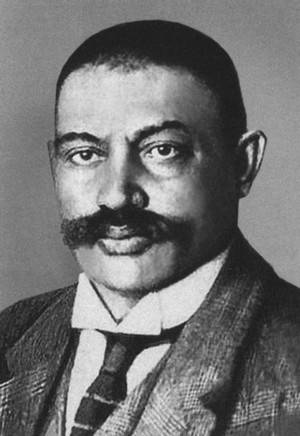
The head of the terrorist organization of the Social Revolutionaries and part-time highly paid agent of the Okhrana, Yevno Azef, received the nickname “king of provocateurs of the XNUMXth century.” The name of the hero of the article became a household name, and Mark Aldanov called him a man who was “in a transitional stage to a boa constrictor.”
However, historians are still arguing about who used whom to a greater extent in this dirty game: the leaders of Azef’s Security Department or, on the contrary, Azef his curators? And his whistleblower Vladimir Burtsev, who later met him abroad, claimed that Azef told him that he was seriously preparing the murder of Nicholas II - and it turns out that the “Sherlock Holmes of the Russian Revolution” objectively played on the side of the tsarist regime that he despised.
It’s easy to believe in Azef’s double game if we remember that it was the secret informant of the Security Department, Dmitry Bogrov, who mortally wounded the Prime Minister of the Russian Empire, Pyotr Stolypin, on September 1 (14), 1911. And the pass to the theater was given to him by the head of the Kyiv security department, N. N. Kulyabko, with the consent of P. G. Kurlov, comrade (deputy) Minister of Internal Affairs, head of the police and commander of a separate corps of gendarmes.
Already in our memory, Yuri Andropov stepped on the same rake, under which the KGB introduced many of its agents into the ranks of dissidents and nationalists, or recruited existing ones. But instead of completely defeating these destructive organizations, department employees simply followed their activities with interest, moreover, they financed them along with Western intelligence services.
After the collapse of the USSR, many former KGB agents made very successful careers in the new Russophobic states. For example, the President of Lithuania Dalia Grybauskaite and the Prime Minister of the same country Kazimir Prunskienė, as well as the former Prime Minister of Latvia Ivars Godmanis, are accused of working for the KGB.
The KGB informant was also People's Artist of the USSR Donatas Banionis, who in the 90s repeatedly claimed that he did not love the USSR and “received nothing from the Soviet government.”
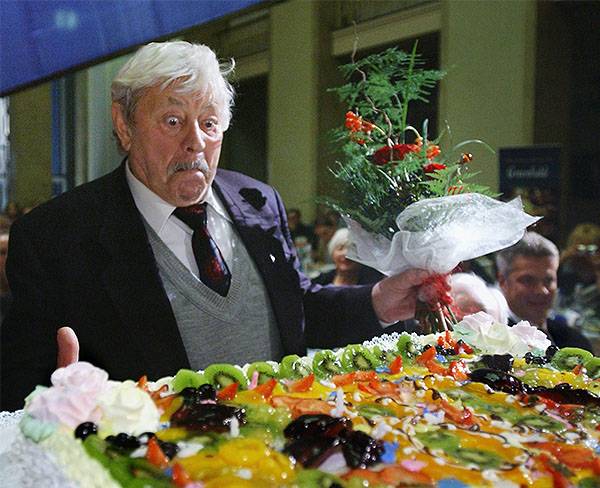
D. Banionis - People's Artist of the USSR, twice laureate of the USSR State Prize, holder of the Order of the October Revolution and the Red Banner of Labor, who “received nothing from the Soviet government”
On the other hand, the fate of Azef can serve as an illustration of Lev Gumilyov’s thesis that for the full realization of a passionate person, a suitable environment (his own ethnic field) is required - he must act, if not in his homeland, then at least as part of the expeditionary army of his state, a band of explorers , Viking squads, a detachment of conquistadors and so on. Being isolated, he becomes like the mythical Antaeus, whom Hercules easily defeated by depriving him of contact with the soil that nurtured him.
Indeed, in exile Azef suddenly turned out to be a boring and unremarkable man in the street. The same fate awaited Nestor Makhno in Paris, Leon Trotsky in Mexico and Bonaparte's rival Victor Moreau in the USA. But in this article we will talk specifically about Yevno Azef.
Yevno Azef: the path to the Social Revolutionaries and provocateurs
Yevno Fishelevich Azef (who preferred to call himself Evgeny Filippovich) was born in 1869 in the town of Lyskovo (Volkovysk district, Grodno province) into a poor Jewish family. His father worked as a tailor, his mother kept house (according to some sources, she abandoned her children and ran away from her husband who beat her).
The boy, who was destined to become the head of the Social Revolutionary Combat Organization and a famous provocateur, was the second child of either six or seven children. His childhood was spent in Rostov-on-Don, where his parents moved. Here Evno studied at a real school, where he became a member of an underground circle, which included mainly Jews.
After graduating from this educational institution, Azef worked wherever he had to, even in a traveling tent. Finally, I decided to go study abroad. Since he did not have his own funds, he borrowed 800 rubles from some Mariupol merchant. He was not going to repay the debt, considering it not theft, but “revolutionary expropriation.”
In 1892 we see him as a student at the Karlsruhe Polytechnic Institute - and a member of a Social Democratic circle organized by Russian students. At that time he was 23 years old.
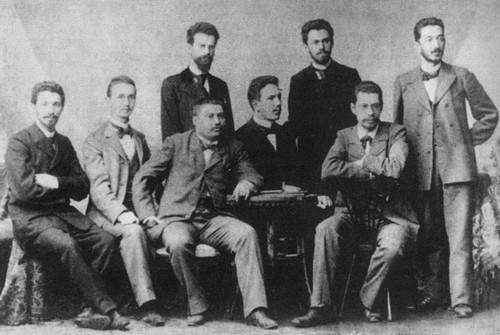
Azef among Russian students in Karslruhe - sitting third from left
However, the Mariupol merchant’s money soon ran out, Azef had no other means of livelihood, and therefore already in 1893 he addressed the Police Department with a letter in which he offered his services to the Okhrana as a paid informant. He did not sign, but the anonymous police official demonstrated the capabilities of his department by answering him:
Azef was assigned a “salary” of 50 rubles per month (the monthly salary of a worker in St. Petersburg at that time was 20–25 rubles), but “bonuses” were also paid for Christmas and Easter. Now Azef lived, although not richly, but not in need either.
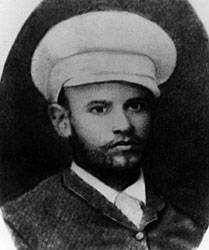
Yevno Azef, photograph from the 1890s.
In 1895, in Darmstadt, he met Lyubov Grigorievna Menkina, the daughter of the owner of a stationery store from Mogilev, who was then studying at the Faculty of Philosophy at the University of Bern and along the way became interested in revolutionary ideas. In 1896, Azef and Menkina entered into a marriage that turned out to be unhappy. However, the wife still gave birth to two children from Azef.
In 1899, having completed his studies, Azef returned to Russia, joined the Socialist Revolutionary Party and got a job as an engineer at one of the Moscow factories. He sent his reports under the pseudonym “Engineer Raskin.”
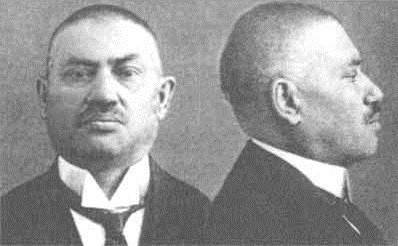
“Engineer Raskin”, archival photo
A document has been preserved describing the information supplied by Azef:
Azef’s supervisor was the famous Sergei Zubatov, the head of the Moscow security department, the author of the idea of creating trade unions controlled by the police.
It is curious that later Zubatov’s trusted employee, Leonid Petrovich Menshchikov, a former Narodnaya Volya member who became a senior assistant clerk at the Police Department, went over to the side of the revolution. He headed the “table” that controlled the activities of all security departments in the country. In 1907, Menshchikov retired and, under the pseudonym Ivanov, was actively involved in exposing provocateurs embedded in the revolutionary environment.
In total, he identified about 2 of them, including 000 Social Democrats, 90 Bundists, 34 Socialist Revolutionaries, 28 Polish revolutionaries, 75 Caucasians and 45 Finns. But he did not have the talent for self-PR, which Burtsev fully possessed, and therefore his name is known only to specialists involved in the study stories those years. Not even a photograph of this man has survived.
Social Revolutionaries
The Socialist Revolutionary Party (SRs), as you know, took organizational form at the end of 1901. Back in 1894, in Saratov (which was then one of the main centers of the revolutionary movement in Russia), A. A. Argunov created the first circle of followers of the defeated Narodnaya Volya, which was called the “Union of Socialist Revolutionaries.” Later he moved to Moscow.
By the way, it was on Argunov’s recommendation that Azef was accepted into the ranks of the future Socialist Revolutionaries back in 1899.
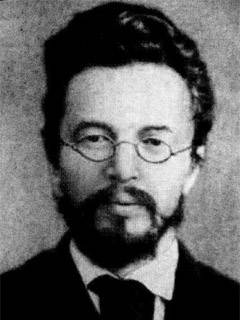
Andrei Aleksandrovich Argunov, nobleman, founder of the Saratov circle “Union of Socialists-Revolutionaries”, in the future – deputy of the Constituent Assembly from the Socialist Revolutionary Party

The emblem of the Social Revolutionaries in 1917
Soon similar circles appeared in St. Petersburg, Penza, Poltava, Voronezh, Kharkov, and Odessa. Some of them belonged to the “Southern Socialist Revolutionary Party”, others to the “Union of Socialist Revolutionaries”, and there was also the Geneva “Agrarian Socialist League”. As already mentioned, they all united at the end of 1901; in January 1902, the illegal newspaper “Revolutionary Russia” announced the creation of a new party (one of its printing houses in Tomsk was destroyed in 1901 following Azef’s denunciation).
The main ideologist of the Socialist Revolutionary Party was V. M. Chernov, who, by the way, in 1918 became the chairman of the Constituent Assembly, which met from 4 pm to 5 am on January 18–19 (and then, as you remember, “the guard was tired” ).
The Socialist Revolutionaries, who can safely be called the direct heirs of the Narodnaya Volya members, considered the main driving force of the revolution to be numerous peasants - and not workers, like the Social Democrats. Tsarist Russia was an agricultural country with poorly developed industry, and therefore it is not surprising that it was the Socialist Revolutionaries who enjoyed the greatest support among the population.
They continued the Narodnaya Volya tradition of terror against the highest officials of the state. This was their fundamental difference from other terrorist groups. After all, the “motiveless” anarchists (supporters of “motiveless class terror”), for example, believed that the revolution could be brought closer by killing simply decently dressed people, among whom could be not landowners or “bourgeois”, but doctors, university professors, engineers, architects and so on.
Killing such people, of course, was much easier and safer than organizing assassination attempts on the emperor, the minister of internal affairs or the governor general - which was what the Social Revolutionary Combat Organization, which was modeled after the Executive Committee of the People's Will, had been doing for 10 years. Its charter was written by Narodnaya Volya member Mikhail Gots.
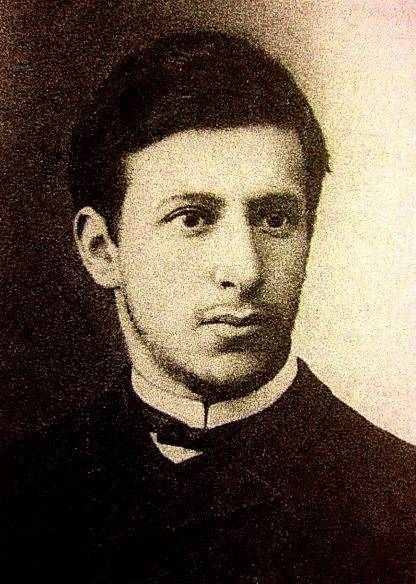
Mikhail Rafailovich Gots
By the way, historians have calculated that from 1905 to May 1, 1909, terrorists of all stripes killed 2 people and wounded 691 people.
The first leader of the Socialist-Revolutionary Combat Organization was Grigory Gershuni, whose photograph was placed on his desk by the Minister of Internal Affairs V.K. Plehve, and whom S. Zubatov called “an artist in the cause of terror.” He outlined his goals and priorities as follows:
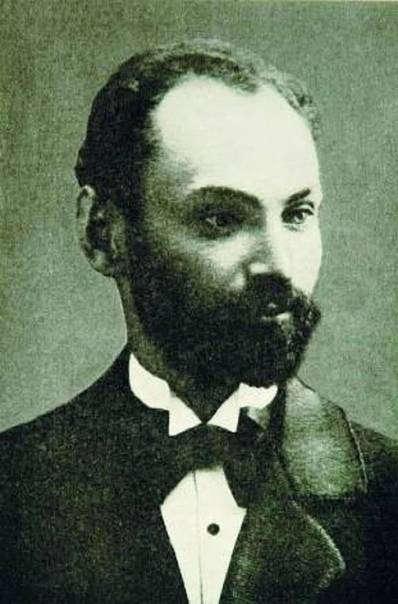
G. Gershuni
V. Chernov wrote about him:
Let us note that the Moscow homosexual governor-general Sergei Alexandrovich did not have children - his nephews sat next to his wife (Grand Duchess Elizaveta Feodorovna, the elder sister of Empress Alexandra). Struck by Kalyaev’s nobility, Elizaveta Feodorovna forgave him and turned to Nicholas II with a request to pardon her husband’s killer, but was refused.
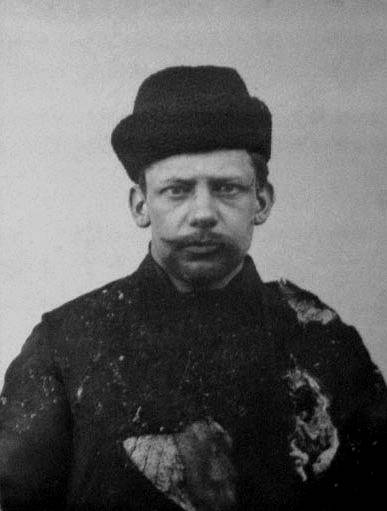
Wounded Ivan Kalyaev after the terrorist attack, which nevertheless took place on February 4, 1905 - “his entire underwear was covered with pieces of wood, there were shreds hanging, and it was all burnt, blood flowed profusely from his face.”
The hero of the article, Yevno Azef, became Gershuni’s successor. After his exposure, the place of the head of the Combat Organization was taken by Azef’s deputy, the famous Boris Savinkov, who declared the need to restore the “honor of terror.” And it turned out that he acts much less effectively than the provocateur Azef: all the terrorist acts he prepared ended in failure. As a result, the Combat Organization of the Socialist Revolutionary Party was dissolved at the beginning of 1911. But we've gotten too far ahead.
Revolutionary career of Yevno Azef
The leaders of the Security Department valued Azef very much and constantly increased his salary, which eventually reached a thousand rubles a month, twice the general's salary. Meanwhile, Azef’s salary in the Socialist Revolutionary Party never exceeded 125 rubles a month.
The curators did their best to promote Azef’s career in the Socialist Revolutionary Party: he created underground circles, organized the unimpeded transportation of illegal literature, and even made dynamite. It is not surprising that Azef quickly gained authority among the leaders of the Socialist Revolutionary Party. The leaders of the Police Department allowed the “especially valuable employee” Azef to join the Combat Organization - and he immediately took an active part in preparing the assassination attempt on the Minister of Internal Affairs D. Sipyagin.
Azef reported to his curators:
At Sipyagin’s funeral, Gershuni planned an assassination attempt on the Chief Prosecutor of the Synod, Pobedonostsev, and the Governor-General of St. Petersburg, Kleigels, but the perpetrators failed. Then Gershuni organized an assassination attempt on the Kharkov governor I. Obolensky (who was wounded) and the Ufa governor N. Bogdanovich (killed).
Azef's own game
There is every reason to believe that already in 1901 Azef left the control of the Security Department. Now he did not report everything he knew, but only what he considered “necessary.” Some of the information he supplied was true, others were in the nature of misinformation. He “surrendered” to the police not only ordinary Socialist Revolutionaries; among those handed over to him were, for example, all members of the first Central Committee, as well as revolutionaries from other parties.
Among those arrested on his tip was, for example, M. Vedenyapin-Stegeman, who later, while in exile near Penza, discovered the skeleton of a mosasaurus there. Extradited by Azef to A. Yakimova-Dyakovskaya was a member of the Executive Committee of the People's Will, a member of the famous “Freedom or Death” group, took part in the preparation of assassination attempts on Alexander II, joined the Socialist Revolutionary Party in 1904, and participated in the First Russian Revolution. In 1922, she was elected a member of the presidium of the central council of the Society of Former Political Prisoners and Exiled Settlers.
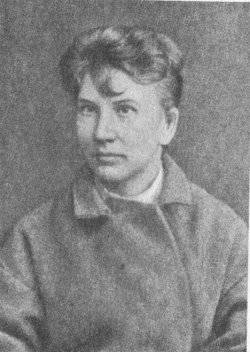
Anna Vasilievna Yakimova-Dikovskaya, photograph taken around 1883.
Another victim of Azef’s denunciation was a member of the RSDLP, G.I. Lomov (Oppokov), the future People’s Commissar of Justice, Deputy Chairman of the Supreme Economic Council, Deputy Chairman of the State Planning Committee of the USSR.
But Azef carefully protected other leaders of the Socialist Revolutionaries and especially his personally selected subordinates (the same Savinkov). He tried to get rid of other provocateurs, whom he mercilessly handed over to members of the Combat Group for execution, and handed over double agents who worked for both sides to the Okhrana.
In this way, firstly, he increased his importance (and even irreplaceability) in the eyes of his curators, and secondly, he tried to protect himself from exposure. So, in particular, it was at Azef’s suggestion that the famous Georgy Gapon, the leader of the “Meeting of Russian Factory Workers of St. Petersburg” and the organizer of the popular march on January 9, 1905, was killed by the Socialist Revolutionaries. But on July 5 of that year, Azef refused to confirm that the organizer of Gapon’s murder, Rutenberg, was carrying out the party’s orders.
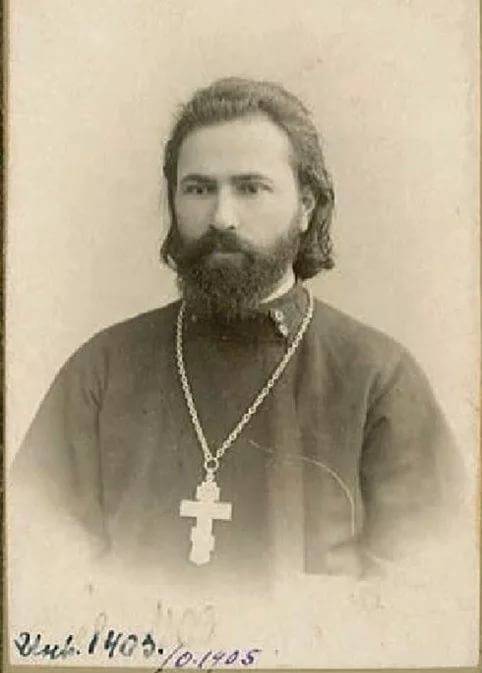
Georgy Apollonovich Gapon
Azef, as we remember, not only allowed the Minister of Internal Affairs D. Sipyagin to be killed (in April 1902), but also gave the organizer of this attempt, Grigory Gershuni, an opportunity to escape: he reported his name only after he had gone abroad. Moreover, he tore off 500 rubles from the Police Department, which he allegedly spent to find out the name of the head of the Combat Group.
There were still rumors among the Socialist Revolutionaries that someone from the party leadership had been recruited by the Okhrana, but Azef remained above suspicion. Later Mark Aldanov wrote about him:
Azef disclosed the other part of the planned terrorist acts to the Police Department in a timely manner so that there could be no suspicion there either. Each side was convinced that he was devoted to it with all his soul.”
In the next article we will talk about Azef’s activities as head of the Socialist Revolutionary Combat Organization, his exposure, flight abroad and life in exile.
Information